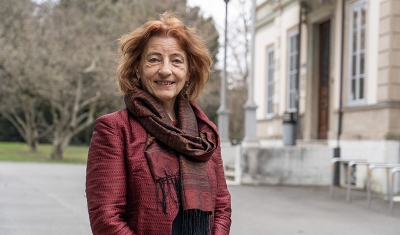Emerging Technology and the Future of International Humanitarian Law
Military Briefings


Defence Images
The law often tends to lag behind technological developments, particularly in armed conflict. In international humanitarian law (IHL), the 1907 Hague Conventions and the 1949 Geneva Conventions form the basis for regulating technologies that are emerging in the 21st century, and that none of the drafters in 1907 or 1949 could have anticipated. Nonetheless, IHL serves a critical role in the context of the development of new weapons and tactics. As new technologies emerge, States need to look at IHL for guidance. Yet, while some of the new weapons and tactics can be sufficiently regulated by the current legal frameworks, other developments will necessarily prove a challenge for IHL.
In this Military Briefing, Professor Jensen – drawing on 20 years of experience with the United States Army, and a decade researching emerging issues in IHL, including cyber-warfare – will discuss the role and evolution of IHL in this context, and provide insights on how armed forces and governments approach these issues.
Briefing by Eric Talbot Jensen
Eric Talbot Jensen is a Professor of Law at Brigham Young University. Prior to joining BYU, he spent 20 years in the United States Army as both a Cavalry Officer and as a Judge Advocate. He served in various positions including as chief of the Army’s International Law Branch. More recently, Professor Jensen served as Special Counsel to the Department of Defense General Counsel. He was also involved in the elaboration of the Tallinn Manual on International Law Applicable to Cyber Warfare.
About the Military Briefings
Military Briefings are a unique series of events relating to military institutions and the law. They aim to improve our students’ knowledge of military actors and operations and build bridges between the military and civilian worlds.










